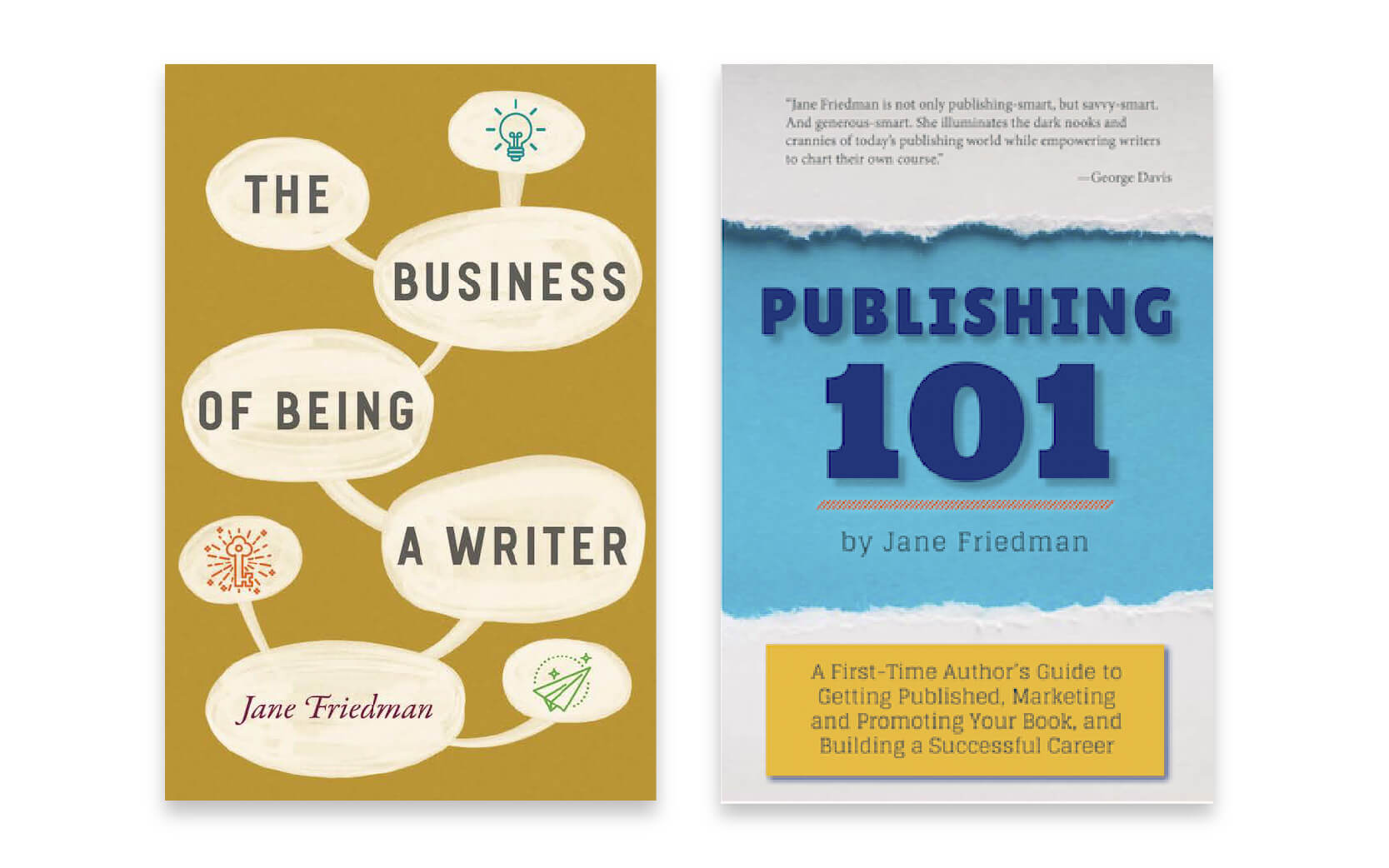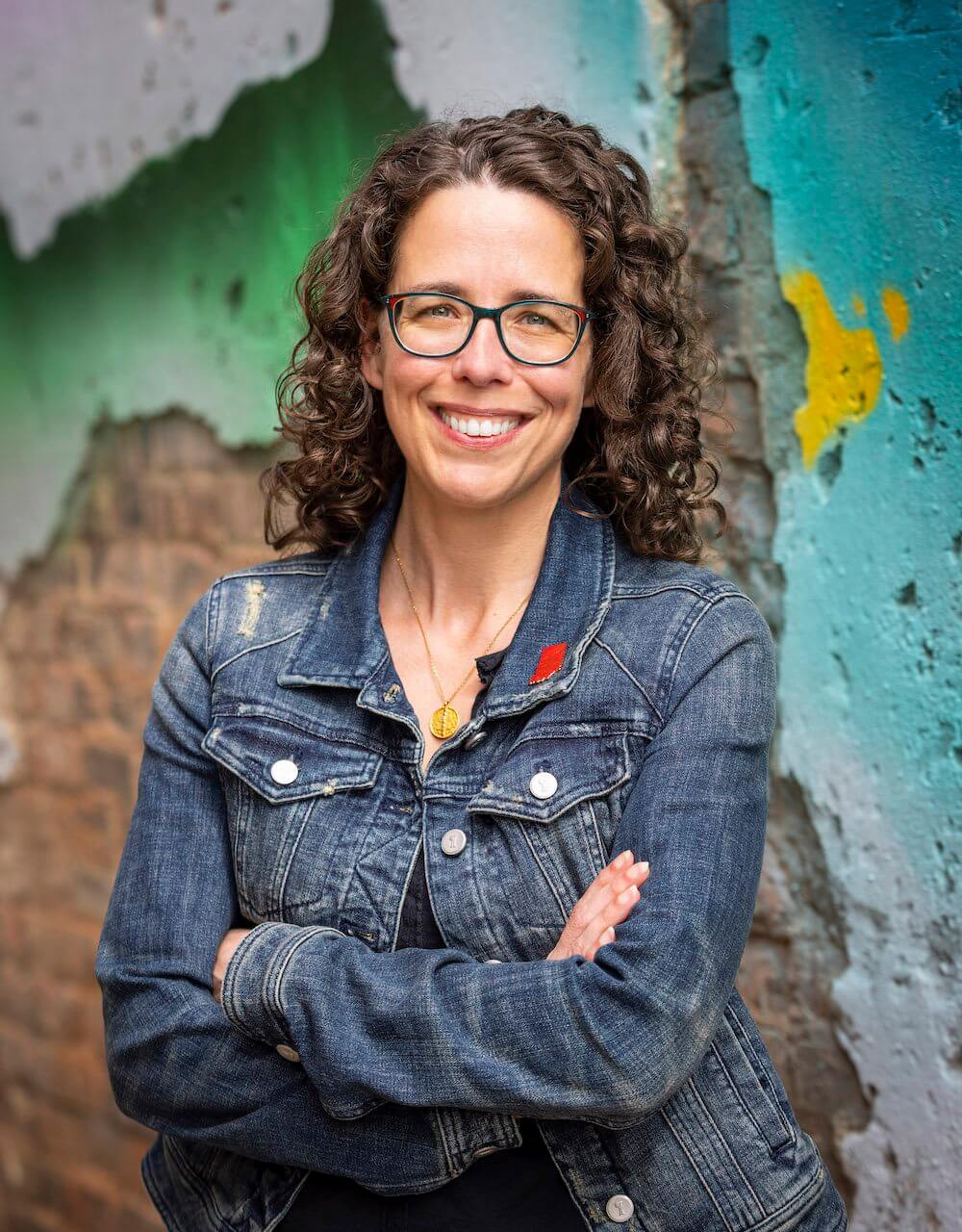Workshops
Guided by industry expert Jane Friedman, learn how to write a compelling nonfiction book proposal to effectively pitch your idea and book to agents or editors in this immersive 1-week workshop.
There are no available registration dates at this time.
This is a hands-on, comprehensive workshop with publishing industry expert Jane Friedman that teaches you step-by-step how to write a compelling nonfiction book proposal, particularly in the digital era of authorship.
A nonfiction book proposal is a required document if you want to land a traditional book publishing deal. It serves as a business plan for your book that proves to an agent or editor why your book will be successful when published.
It is more challenging than ever to successfully pitch a nonfiction book; publishers expect authors to come to the table with a platform—an existing audience—as well as a marketing plan for the book. Many times, writers lack the experience and industry know-how that would help them show off their expertise, experience, or market value in a way that’s convincing.

Sometimes, writers need to work on their platform before pitching their book. This course directly addresses the platform issue and provides insight into how to build a platform that’s convincing to a publisher. (Warning: Platform building is a career-long effort, not something you’ll develop overnight or in a few weeks.)
What It Means to Write a Book Proposal
A strong book proposal will not only help you sell your idea, but it will also help you sell the book when it finally makes its way to market. A thorough book proposal evaluates the audience for the work, how it will stack up against the competition, and why the book will succeed in the marketplace. A solid plan requires research and a thorough understanding of your readership. By developing a full proposal, you’ll gain a clear and compelling view of what has a good chance of selling—an important step whether you want to find an agent, pitch a publisher, or self-publish.
If you plan to write the book first, and figure out the proposal later, reconsider your process. Most nonfiction books are signed on the basis of a proposal and a sample chapter or two. The publisher is often very involved in the development of the content. Writing the entire book before selling it might not only be a time-consuming test run, but you won’t have the insight and knowledge of how to produce a better book until you write the proposal. Many authors, after finishing the proposal, end up changing their angle, perspective, or narrative focus after better understanding what will sell in book form.
Does your nonfiction concept have what it takes to get the attention of an editor or agent? This workshop will teach you how to study the marketplace and evaluate other titles in your category, giving you an editor’s eye for what sells. You’ll learn to identify and persuasively present the most marketable qualities of your project, and build a book proposal that meets the requirements of the publishing industry. While there is no “right way” or formula for preparing a book proposal—just as there is no right way to write a book—this course will lead you through every required component as well as some optional ones.
In this workshop, you will:
- Complete a rough draft of a nonfiction book proposal. Some book proposals are only a dozen pages or so. Others might exceed fifty pages. We’ll work on the essential elements, including the overview, the target market analysis, the competitive title analysis, the author bio, and the marketing plan. (You’ll need a chapter overview and sample chapter as well, which you’ll likely need to write outside of this workshop.)
- Follow a clear, step-by-step process to make writing a proposal more manageable. It can feel daunting to begin writing a book proposal. This workshop breaks it down into small, doable steps until the full proposal comes together. Rather than having you start the proposal by writing the overview (which can be exceedingly difficult), we will complete the easiest step first—which also happens to be the most valuable!
- Understand what goes into a meaningful marketing plan. Some authors’ marketing plans amount to vague action points that are unlikely to sell books, such as “get reviews” or “do book signings” or “promote the book on my website.” That doesn’t cut it. You’ll learn how to quantify and express the power of your reach and visibility to your target market in a way that matters to publishers.
- Learn how publishing professionals research and evaluate ideas. Jane spent more than a decade at a publishing house that produced exclusively nonfiction titles. She evaluated thousands of proposals, and also pitched her own ideas to the sales and marketing staff. She knows how publishing professionals think about these documents and what information is meaningful to them.
- Learn how to research and approach agents and editors. If you’ve never before had to identify agents or editors to submit to, you’ll learn best practices, and how to knowledgeably submit your project for consideration.
- Memoirists will learn the major pitfalls of the genre. There are many ways for memoirists to go wrong when they pitch or position their idea. This workshop will cover what types of memoir typically get rejected, and how memoirists can set themselves apart from others.
Schedule
Day 1: Introduction to the book proposal & competition research
We’ll spend the first part of the day talking about the purpose of a book proposal and what it must accomplish. You’ll then research your competition (both books and authors) and learn how to write the competitive title analysis.
Day 2: Who’s your target reader?
We’ll discuss how to identify your ideal reader, study your target audience online, and write an effective description of who your book is for.
Day 3: Who are you? And what’s your marketing plan?
We’ll discuss how to write about the author statement, but more importantly how to position yourself as the best person to write your book—and ideally one with a platform that will help sell it. You’ll learn how to write a marketing and promotion plan for a book that doesn’t yet exist, including offline and online efforts.
Day 4: Writing the overview and putting it all together
The introduction to your proposal must answer the three questions: So what? Who cares? Who are you? The good news: your proposal work by this point should already answer these questions. Now you need to effectively summarize why your book is needed, and will sell, in less than 2,000 words. We’ll also look at other elements of the book proposal you’ll need to prepare, such as the TOC or chapter overview, sample chapter, and supplementary materials.
Day 5: Agents, publishers, and submitting your work
Learn how to research agents and publishers, then write a query based on your proposal materials. We’ll also use this final day to tackle your unique questions and concerns about the publishing industry and address any outstanding issues about finishing your proposal.
Who Should Take This Course?
- Those who have a partial or finished nonfiction book manuscript and are starting to consider the path to publication.
- Those who have a concept or idea for a nonfiction book, for which they want to explore the market potential—and ultimately write a book proposal for.
- Those who have a completed memoir and want to write a book proposal as part of the pitch process to agents and publishers.
- Those who are currently grappling with the book proposal writing process and need help.
Testimonials
“I just wanted to express my gratitude for your website and your online course. Best money I ever spent. I crafted a proposal as you suggested. I signed with an agent and now have a publisher, New Harbinger. The book’s working title is Surviving Cancer.” – David Palma, Author.
“I took your book proposal course last summer and want to let you know that I’m sitting here right now reading a contract from an agent – all thanks to you!” – Jane Perdue, Author.
“Just wanted to share the good news that my book, Running with Raven, came out today from Kensington Press. Thanks for your guidance in getting me here.” – Laura Lee Huttenbach, Author.
All images copyright Jane Friedman.
Share This

Instructor: Jane Friedman
Jane Friedman has 25 years of experience in the publishing industry, with expertise in business strategy for authors and publishers. She’s the co-founder and editor of The Hot Sheet, a paid newsletter for authors, and has previously worked for Writer’s Digest and the Virginia Quarterly Review. In 2023, Jane was awarded Publishing Commentator of the Year by Digital Book World; her newsletter was awarded Media Outlet of the Year in 2020. She spent 12 years working at F+W Media, where she evaluated and acquired hundreds of books based solely on the book proposal. She worked on nonfiction books across many different categories, including reference, how-to, sports, self-help, fine art, crafts, graphic design, and humor. She also served as editor for How to Write a Book Proposal by Michael Larsen.
You might know Jane because of her experience with AI book fraud, which she wrote about in August 2023. Here’s a roundup of the extensive coverage and interviews about what happened.
Jane’s latest book is The Business of Being a Writer (University of Chicago Press), which received a starred review from Library Journal. Publishers Weekly said that it is “destined to become a staple reference book for writers and those interested in publishing careers.” In collaboration with The Authors Guild, she wrote The Authors Guild Guide to Self-Publishing.

